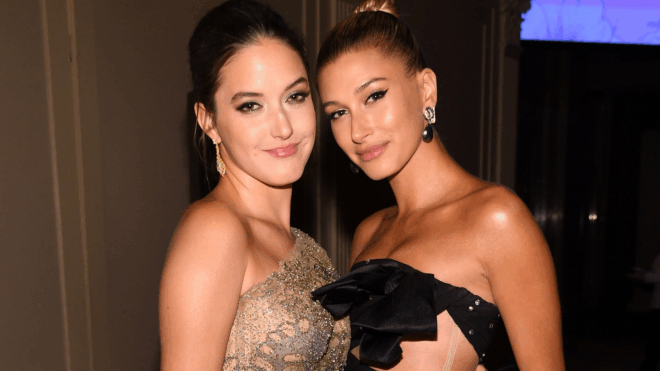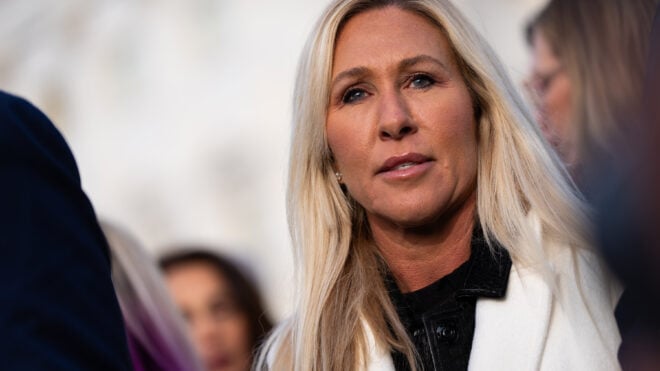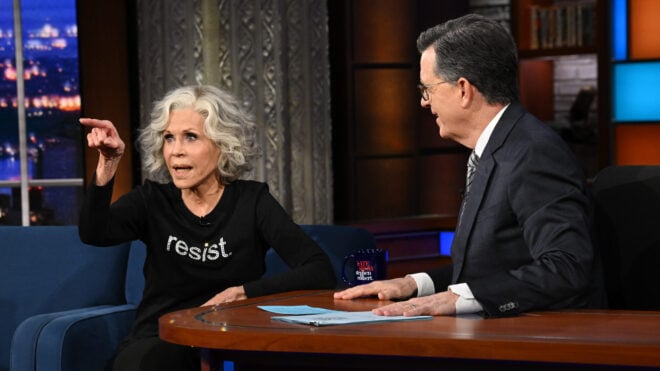Alanis Morissette is a lot of things: celebrated singer-songwriter, activist, and mom to three children are all high on the list. She and her husband, Mario Treadway, are parents to 9-year-old Ever, 3-year-old Onyx, and 9-month-old Winter.
Alanis has also added homeschooling mom to her résumé, or more specifically, unschooling mom.
For those who are unfamiliar, unschooling is a branch of homeschooling that is more child-focused. Children have more agency over what they do and do not learn, and over how they spend their time. It can be a super-successful way to educate your children, and unschooled kids have accomplished a lot — but it can also be an excuse to just not make your kids do much of anything at all.
Happily, it sounds like Alanis and her husband have things under control … mostly. Unschooling is definitely a lot less formal and strict than traditional homeschooling (to say nothing of education in a brick-and-mortar building), and that is definitely reflected in the experience Alanis and Mario have had so far.
She explained that for her, unschooling is all about the kids: "Unschooling, for me, is child-led education. So if there's some agenda like, 'Let's play with these magnet tiles,' and my daughter is like '[Expletive] those tiles, I want to put glitter on that thing and cut the tree and put the thing,' boom, we do that."
This is probably already a lot for some people to wrap their heads around! As a fellow unschooling mom, I can say that it definitely feels scary when you first start out. A lot of people think that school can look only one way, and they try to replicate that when they begin homeschooling. But funnily enough, most of my friends who begin as homeschoolers end up as unschoolers. It's kind of the organic flow of how homeschooling really works, in its best form.
Alanis also says that she and Mario have "pods" all over the house, which sound like stations where the kids can learn. "I basically get inside their eyeballs. I’m constantly watching their eyes and what they’re pulled toward, and then we do the deep dive. My husband and I create pods all over the house — here’s where the spelling area is, and here’s where the fake animals are. There’s probably a better definition of unschooling, but there’s no rigidity to it."
And she touches on another cool aspect of unschooling: It's really about the kids, so what it looks like and how it behaves changes based on what the children in question are interested in. So while it's true that there may be a "better definition," it's also true that the way it works for Alanis and her kids is the only definition they need.
Of course, there is one aspect that perhaps doesn't get discussed often enough: When you're unschooling your kids, you're always teaching them. Alanis explains, "If my son is going to bed late on tour and he asks me three really huge, existential questions, there’s no, 'Ah, we’ll talk about it in the morning.' That is the moment. Unschooling is 24/7. When I share with people that I unschool, a lot of people I’m close with say they’d love to do it but just can’t. And I get it. I’m like, 'Yes. I understand, and I think it’s a smart choice not to do it.' It’s a major commitment."
Of course, for a lot of families who are unschooling (myself included!), this is part of what makes unschooling so great. We were always meant to be unschoolers — my son has been asking questions as soon as he could talk and just never stops. So part of unschooling means always staying open to the curiosity that children (and humans) innately have.
Alanis also opened up about her postpartum experience with each of her children. She said that her experience after her first two children were born was different from her experience now. "My first two children, it was mostly depression, suicidal ideation, and anxiety. But the depression was so in my face that the anxiety was just background music. With this one, it’s mostly anxiety and almost no depression. I’ve come to understand that this is purely animal."
"With breastfeeding, your oxytocin goes sky-high. Then cortisol goes sky-high because you’re trying to protect the baby from, you know, a potential saber-toothed tiger. You’ve got these two competing hormones. Ideally, we’re supposed to be ensconced with, like, 51 women, broths, soups, and warmth as the body is reconstructing — as your identity is reconstructing."
"Cut to modern times, where the world is very masculine, very alpha, which is completely the opposite. On that animal level, you’re just supposed to be up all night feeding your baby and sleeping all day when they’re napping. Who the [expletive] does that? I don’t know any mom that is like, 'I totally sleep when they sleep.'"
Those are truly powerful statements. Alanis also said that experiencing postpartum depression impacts the bond she has with her kids. "Basically, there is a voice that goes, 'Just go to a hotel and make sure the walls are padded, and don’t come out.' I rely on the oxytocin and on knowing that there’s a light at the end of the tunnel."
She also adds that the bond gets stronger, but that it can be challenged by these conflicting emotions and feelings: "And the bond just keeps growing over the years. It’s kind of like meeting someone for the first time — this person comes out of your body and you’re like, 'Hi. Holy [expletive].' But the PPD definitely challenges the bond."
Alanis is always open about her journey on this planet, no matter where she is. She's getting ready to release her latest album, Such Pretty Forks in the Road, and she will be performing at the One World: Together at Home telecast event that will be on TV and streamed online later this month.




